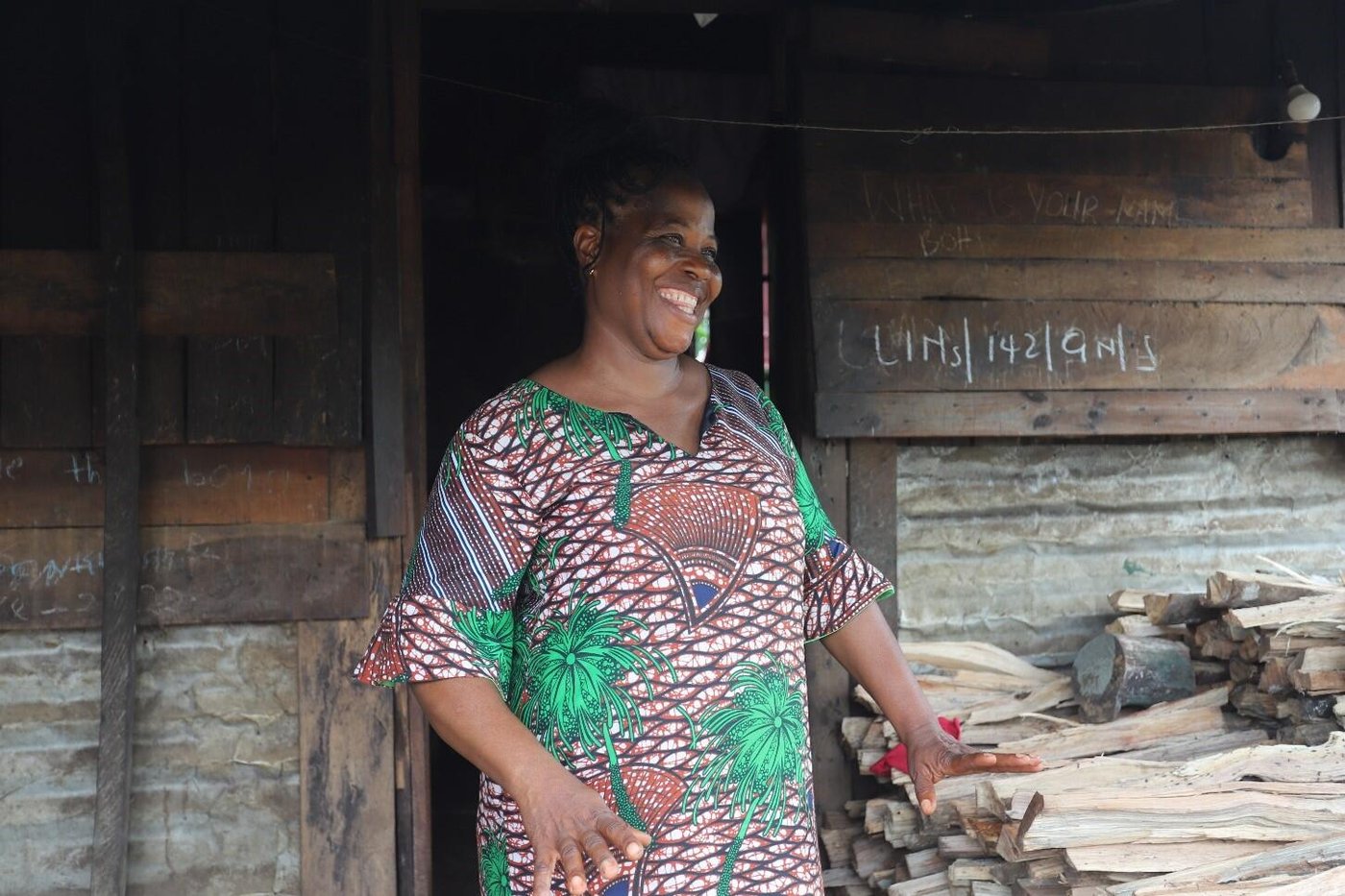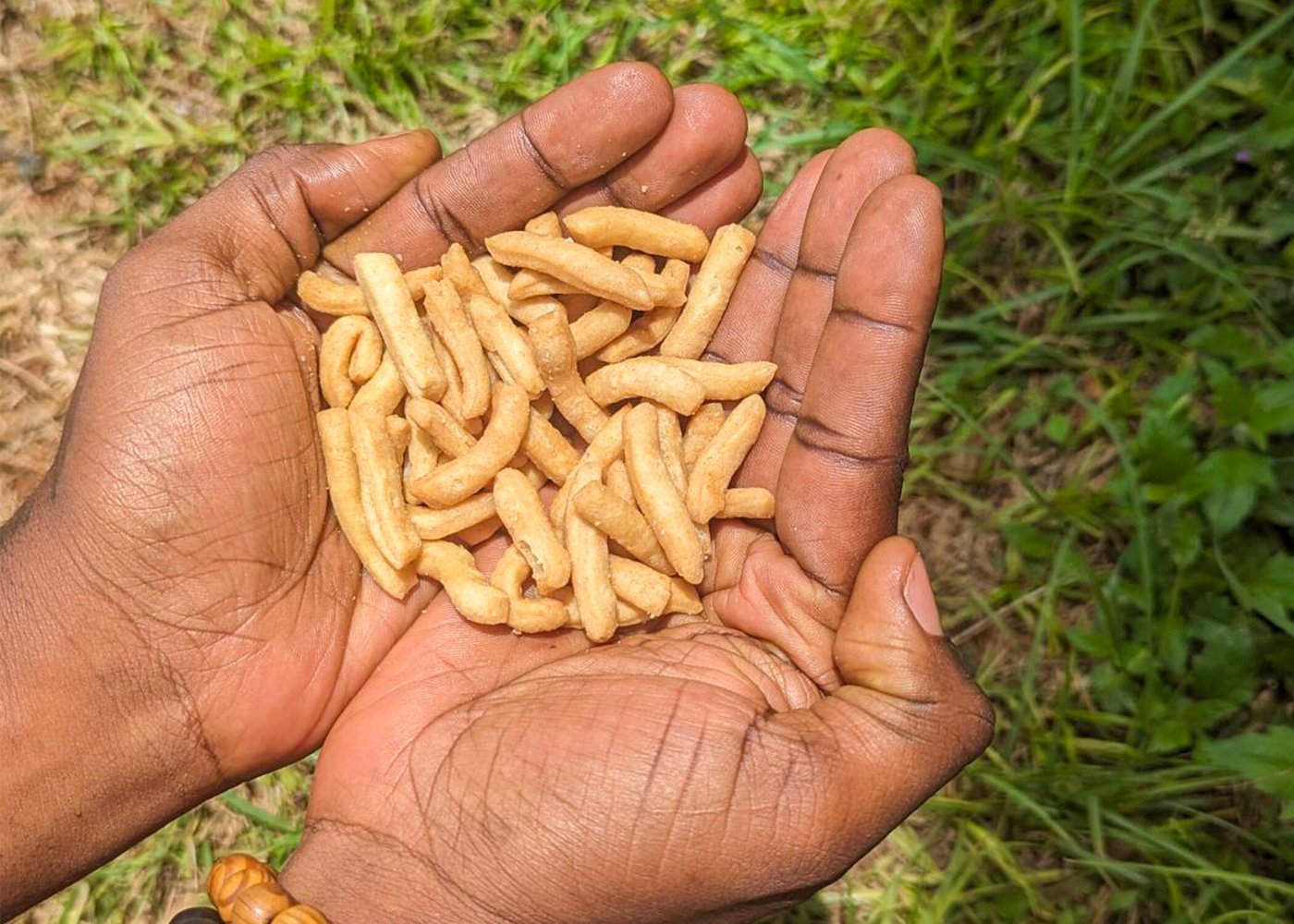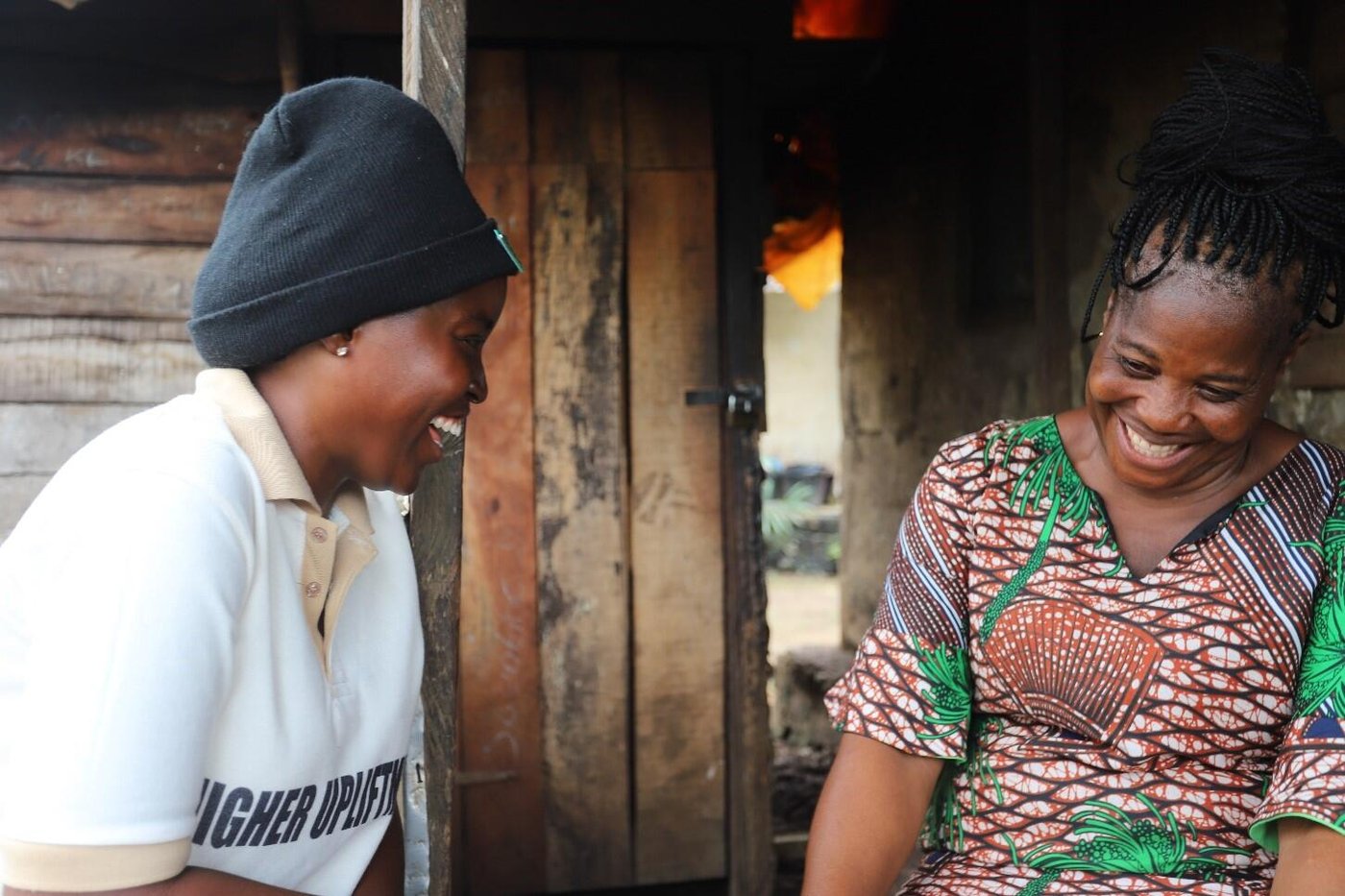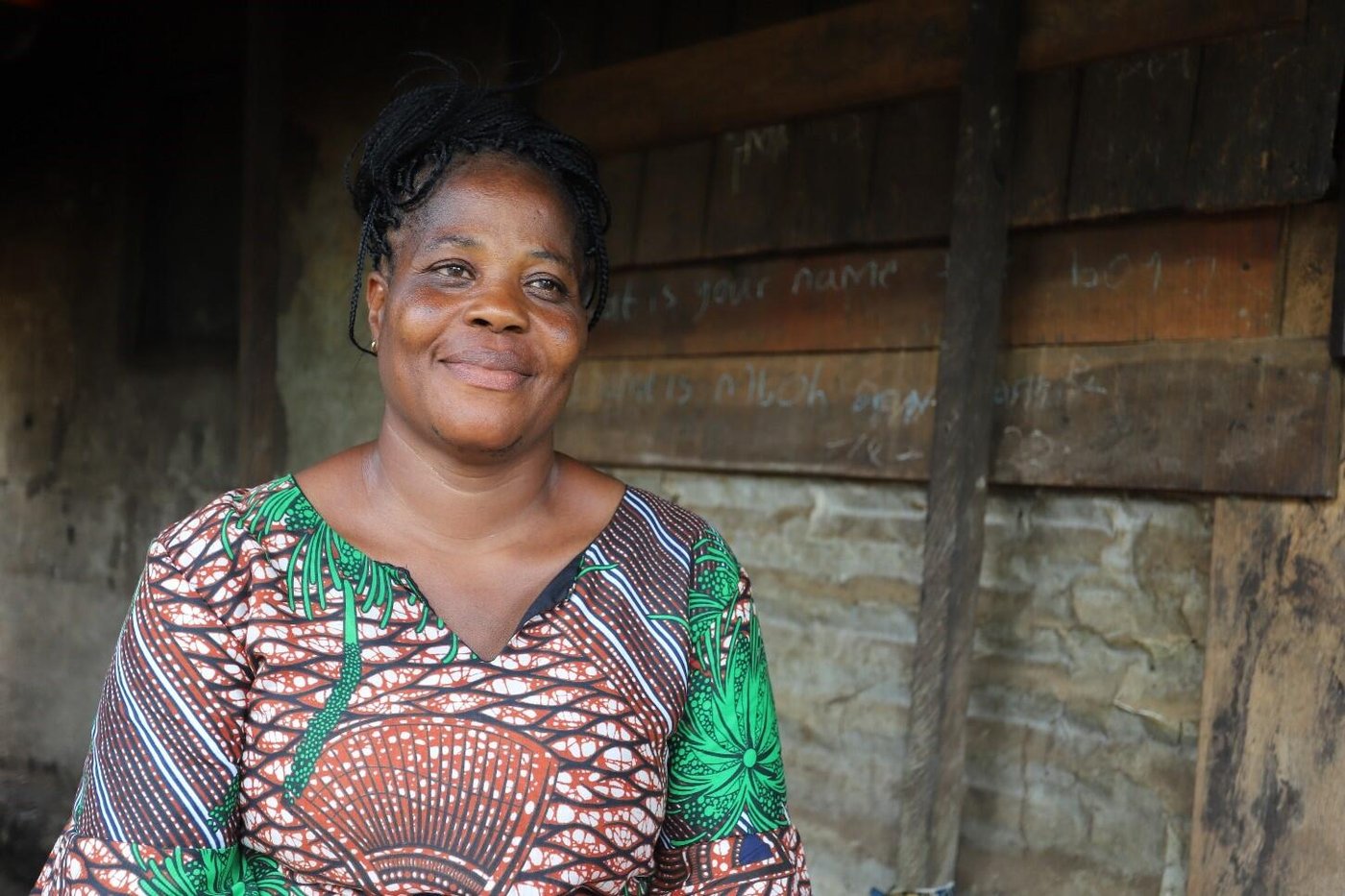“Before this crisis began, we lived an average life,” recalls Vivian. “We could feed our families and loved ones. But when the crisis came, I had no other choice but to flee. [Armed groups] came into the town, burning places everywhere. That night was horrible.”
Vivian and her four children fled without knowing which direction to take. “We were just walking and looking for a safe place to stay for few hours,” she says.
Following this traumatic night, they found themselves in Befang where Vivian was able to rent a car and drive to the regional capital, Bamenda. There, they stayed for three days on the streets, since they had neither relatives nor friends who could offer them shelter.
Finally, Vivian was able to find a way to travel to Tiko in Cameroon’s Southwest region, where a relative was kind enough to accommodate her and her children. “When we arrived, it was not easy,” she says. “We were 11 people in the house, and it was not easy for our hosts to receive us.”
Trying to find her feet in Tiko, Vivian took on two jobs to survive.
“I had to sell chin-chin [a deep-fried, crunchy snack] and groundnuts to try to put something on the table,” she says. “I even worked on a plantation, but they were not paying us and things were not moving.”
When asked how she survived these conditions, she mentioned that neighbours and friends of her hosts were worried about her, and used to stop by and lend a hand from time to time.
At the time, Vivian lacked the means to send her children to school.
“They didn’t attend school for almost three years,” she says. “Neither I nor my host had the means to pay for their schooling. When menstruating, I was not even able to buy pads, and had to rely on primitive methods. This period of our life was just horrible. We couldn't put things together.”
Despite it all, Vivian has always been a strong and engaged woman with a lot of determination. In early 2020, she started working on farms to sell vegetables at the market.
“I was working on one lady’s farm and things were not going as smoothly as I wished,” she says. “In addition to that, the market was volatile, and my income inconsistent. At times, I could make XAF 10,000 a month [equivalent to USD 16], while other times it might be only XAF 5,000. I was also continuing my chin-chin business that was giving me some extra income.”


Starting afresh
A total of 3.2 million people needed emergency food assistance in 2023 in Cameroon, of whom 50 per cent were women. One of the ways that the Norwegian Refugee Council (NRC) assists to people affected by conflict is through multi-purpose cash assistance.
Displaced people and their host communities receive cash assistance to help pay for temporary accommodation, food and hygiene items. We work with partners to target those most likely to need assistance.
In June 2023, Vivian contacted the livelihoods team at NRC and received XAF 125,000 in cash assistance. She decided to stop working on farms and concentrate on her chin-chin business.
“Thanks to the support I received, I was able to increase my chin-chin and groundnut sales to the extend that I am now one of the biggest suppliers in town,” she says proudly. “I even expanded the business to sell wood and clothes.”
Vivian is now a thriving and respected businesswoman in Tiko where she supplies many of the village's residents and shops with her goods. Thanks to her business and the income it generates, she can better look after her family.
“My family can now eat, go to school, and buy yoghurt to drink,” says Vivian. “I can even do my hair and take care of myself. It hasn’t been like that for the past five years, so I still can’t fathom how my story has changed so positively,” she says.

Coordinating efforts to support displaced people
With support from the Foreign Policy Instruments (FPI), NRC provided displacement-affected families with cash assistance for three months, beginning November 2023 in the Northwest and Southwest regions of Cameroon. Each displaced family received cash equivalent to approximately USD 248.
The project aims to achieve long-term solutions and contribute to peacebuilding and social cohesion amongst displacement-affected populations. This includes people who have been displaced, those who have returned home, and host populations in the Northwest, Southwest, West and Littoral regions of Cameroon. The project is addressing the underlying causes of the crisis such as limited services, scarcity of natural resources, poverty, and housing, land and property issues.
NRC and its local partners particularly target community-based organisations working with women, since they are often marginalised from conflict resolution mechanisms. We seek to empower displacement-affected women to identify and implement solutions to the issues that most affect them, their families, and the wider community.
Vivian is one of 28,695 people who received assistance from NRC in Cameroon in 2023. Over 18,400 of these were assisted with the support of NDICI in the Northwest and Southwest regions of the country.
Sign up to our newsletter to read more stories from around the world.


